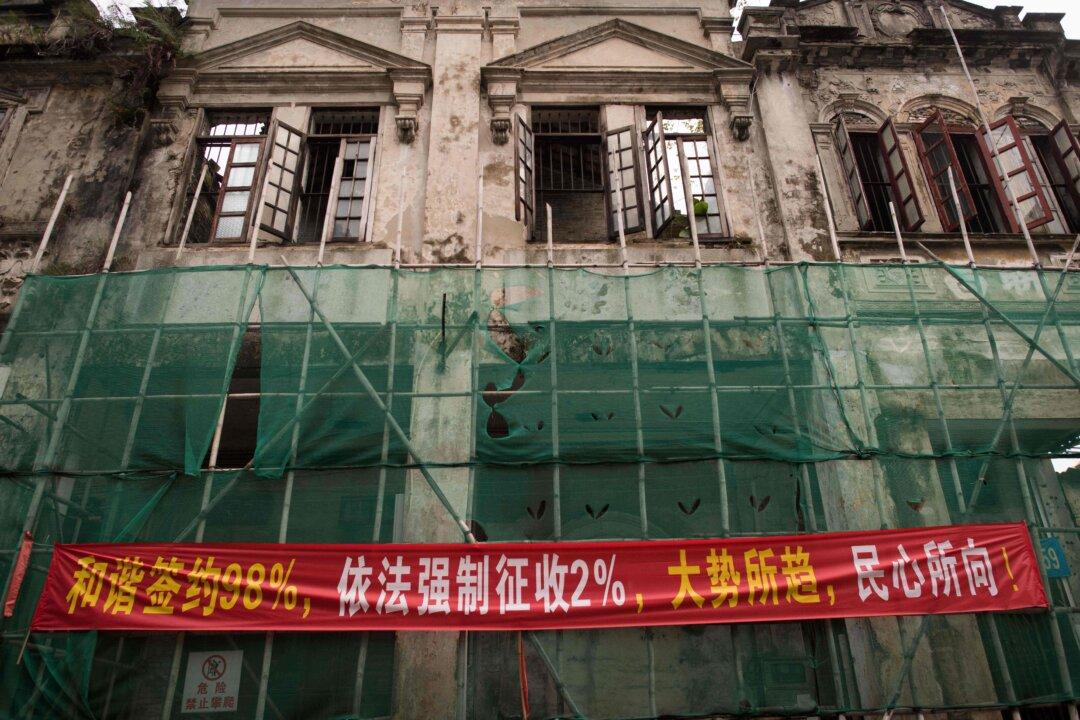The wealth of China’s middle and lower-middle class is locked up in the country’s increasingly risky real estate market, according a study published Nov. 24 by Renmin University of China.
At a press conference held at the Analysis and Forecast of Macroeconomic Performance of China 2018–2019 conference, held in Beijing, the report by National Academy of Development and Strategy of Renmin University indicated that the debt rate of destocking in real estate for Chinese consumers rose sharply and that the consumption base has been severely weakened. At present, the wealth of residents is basically tied to property.




